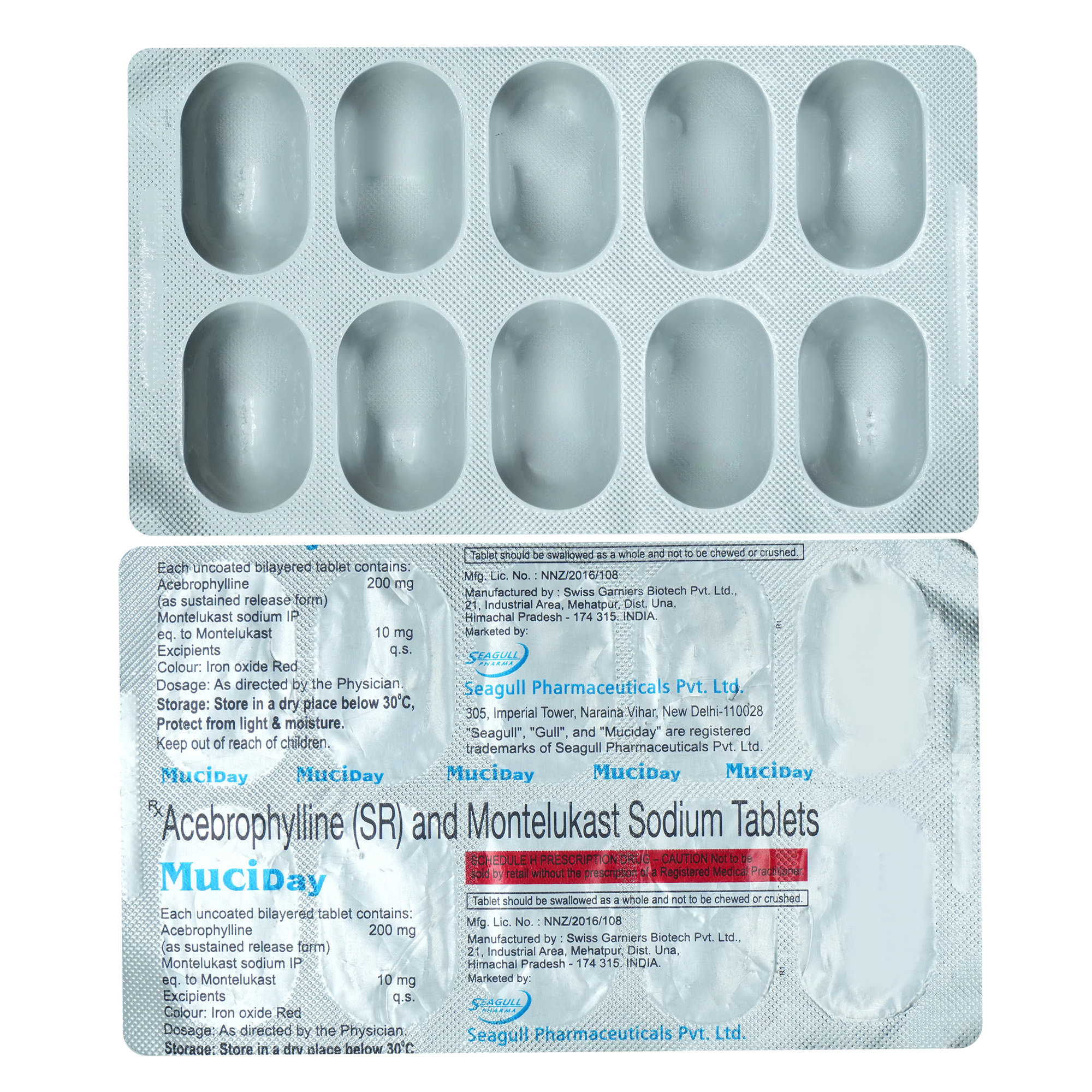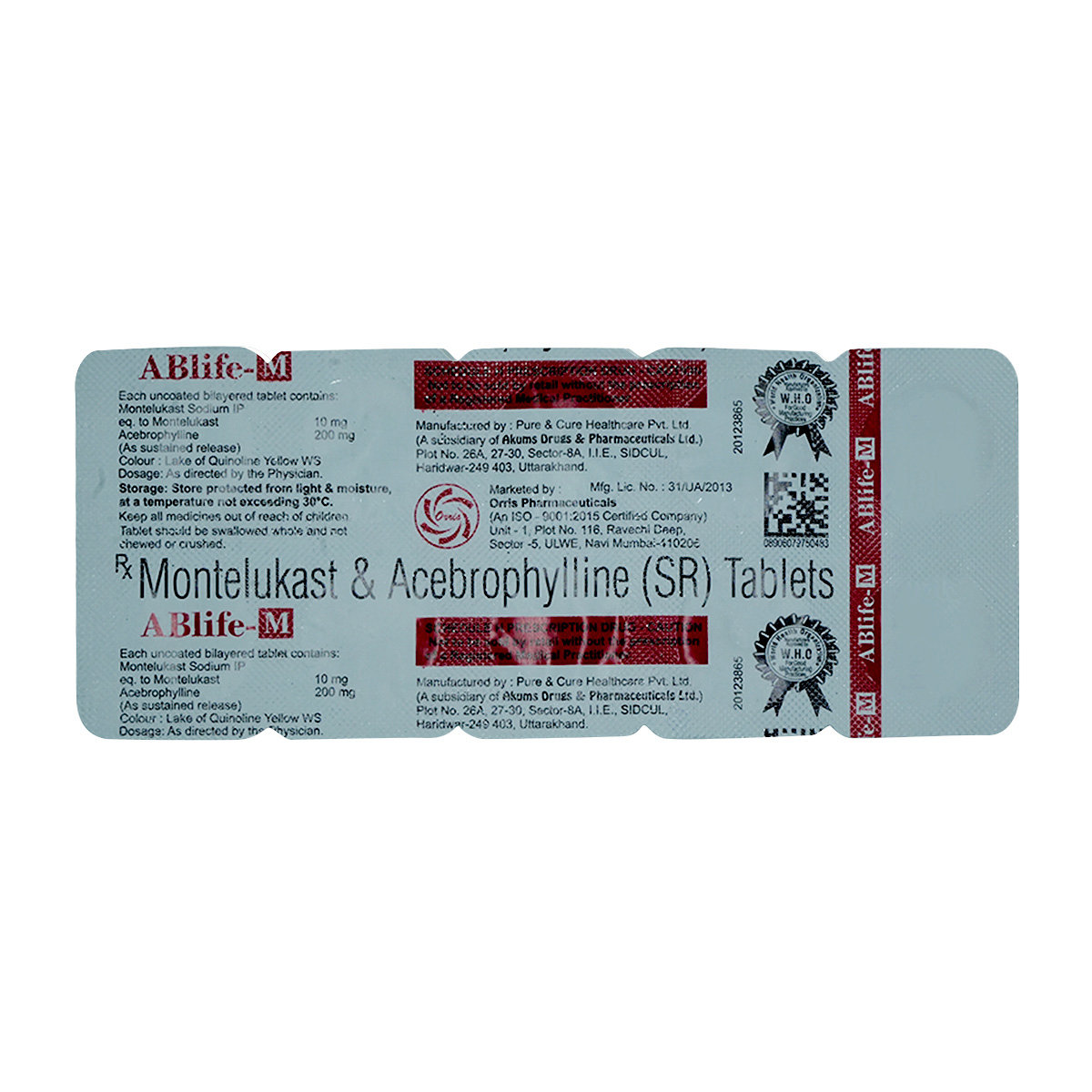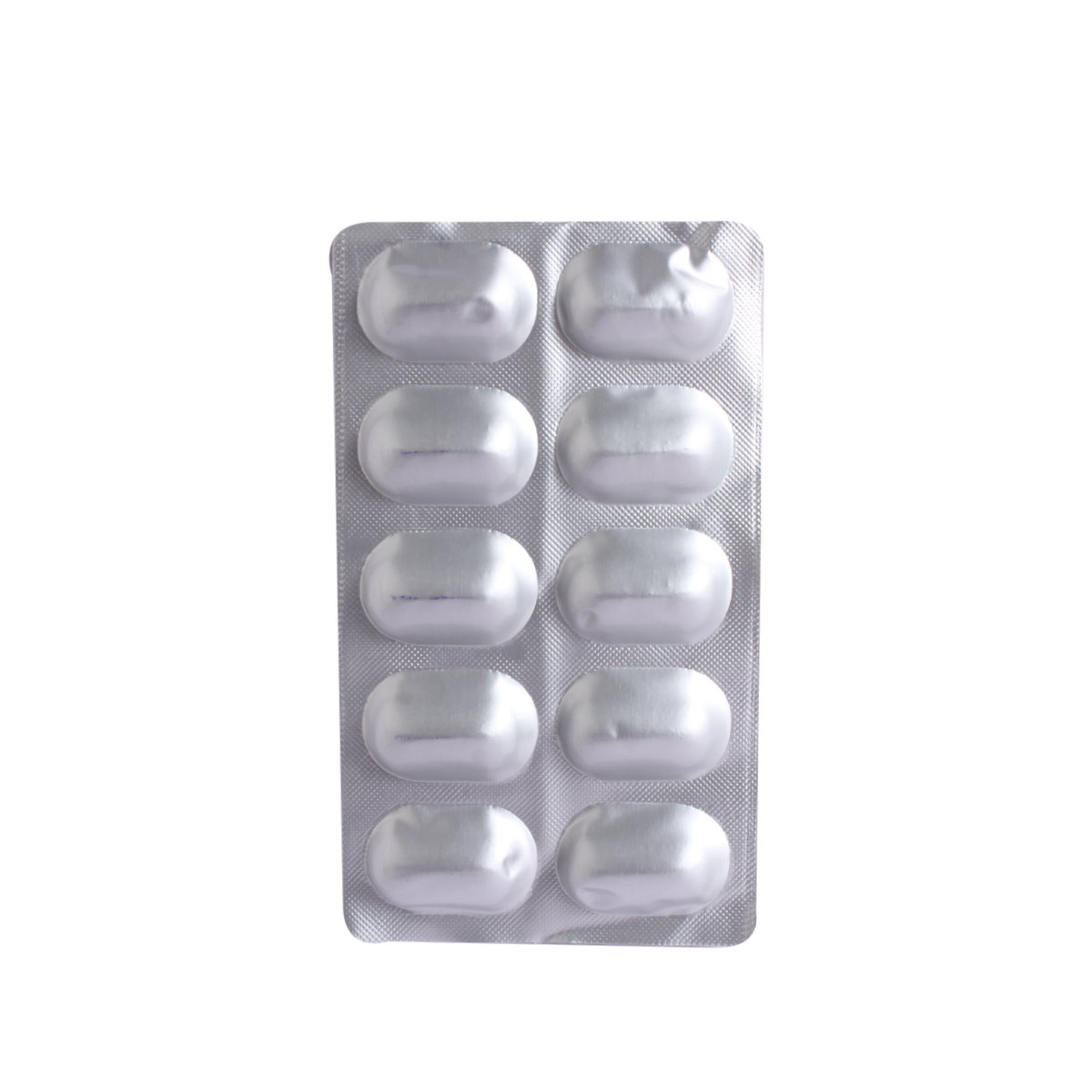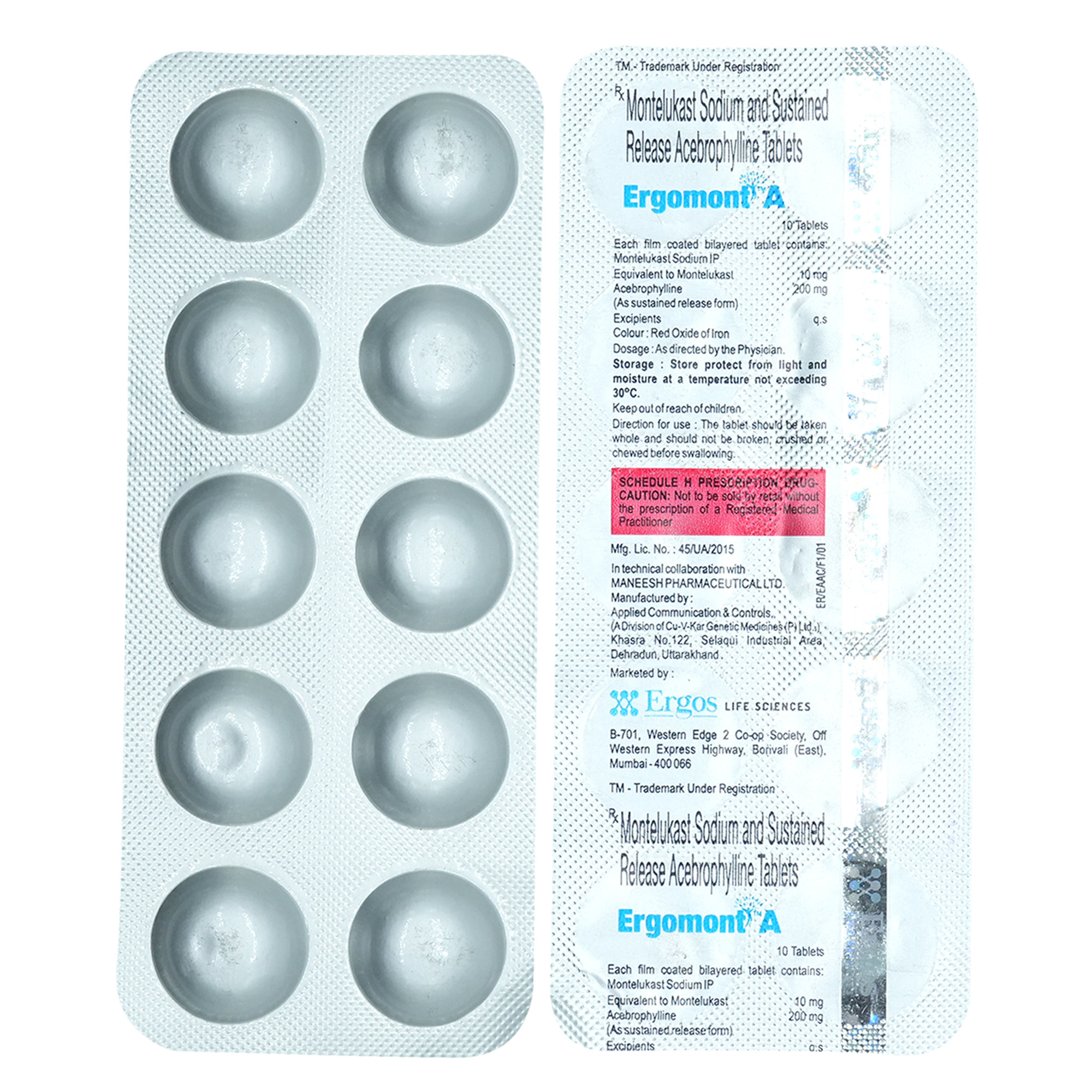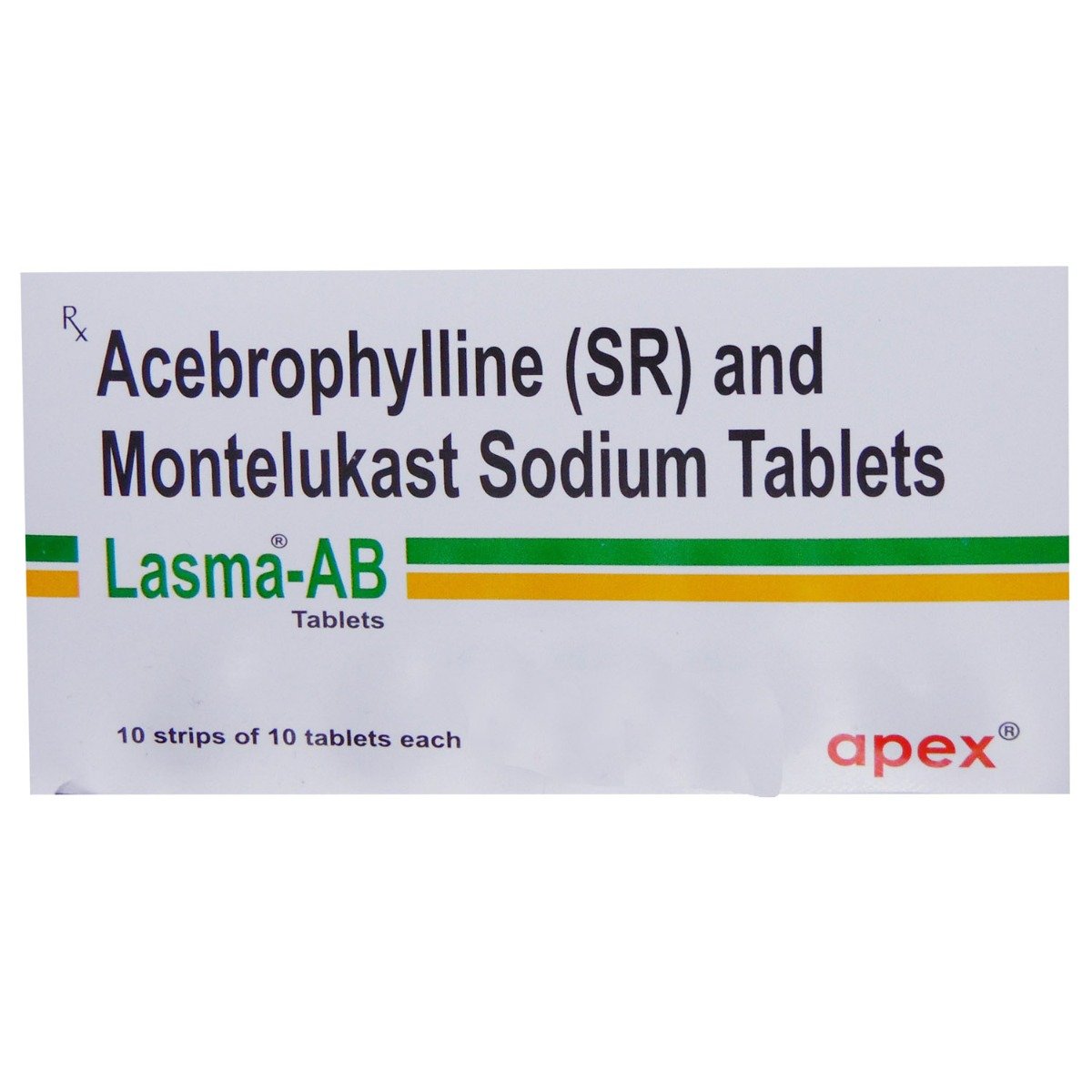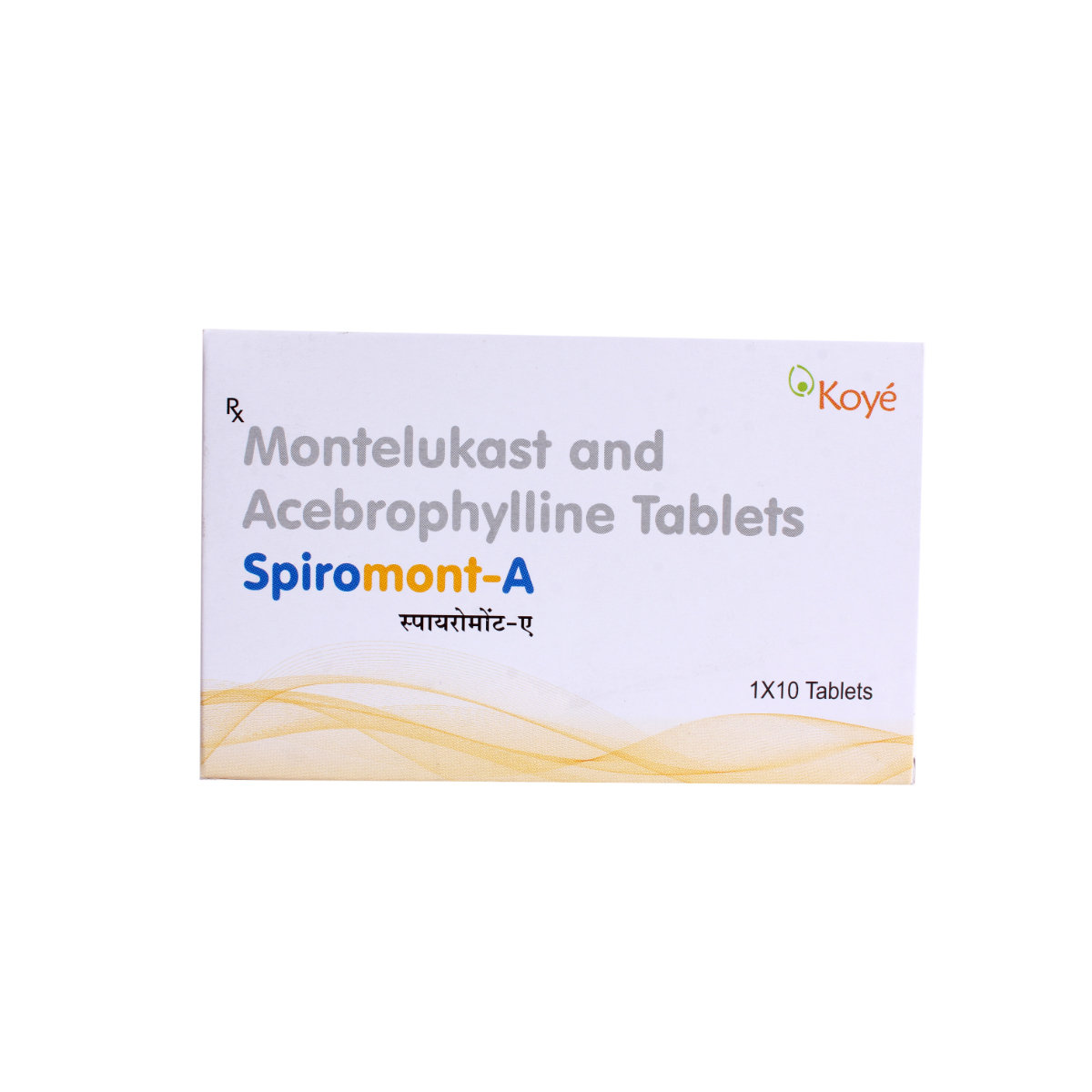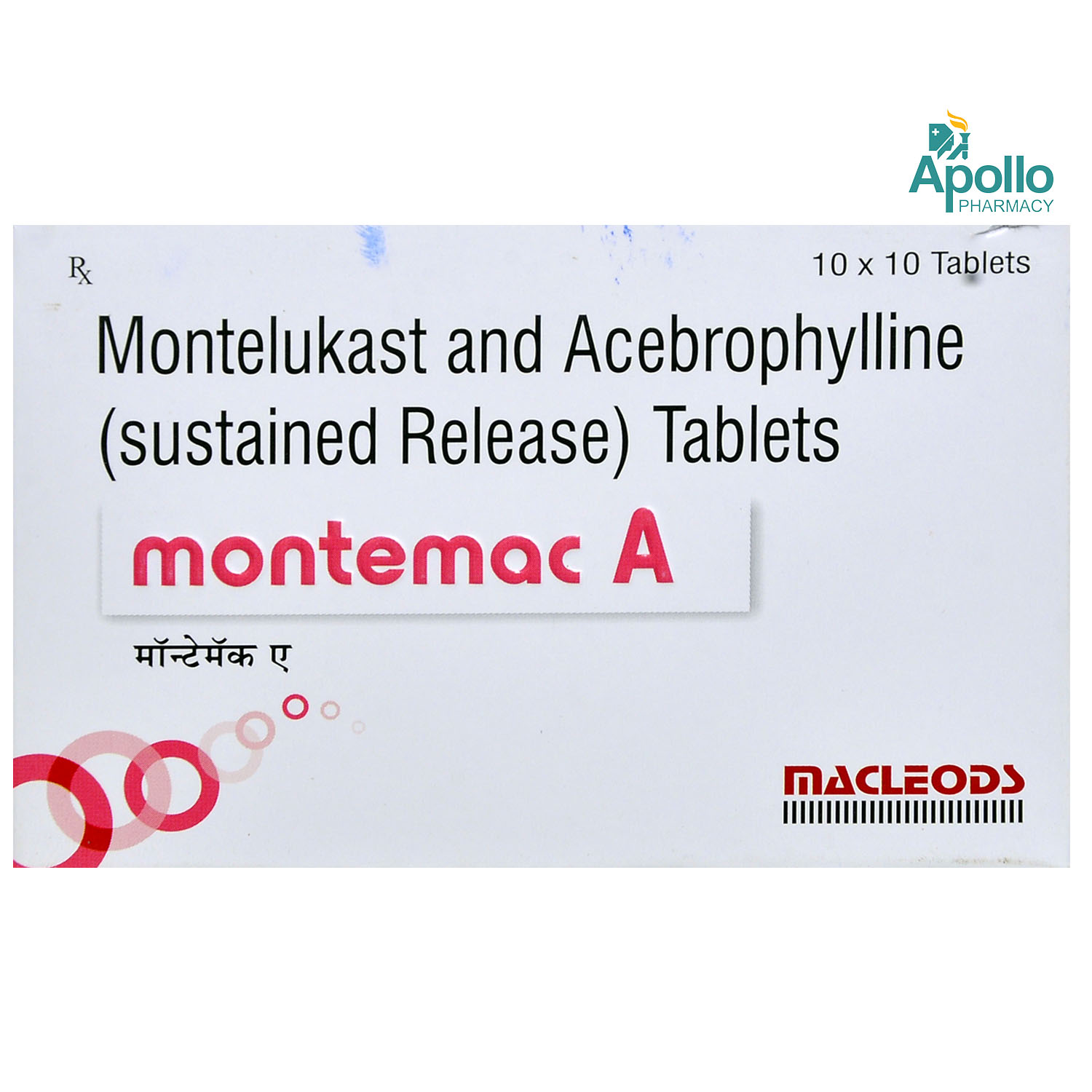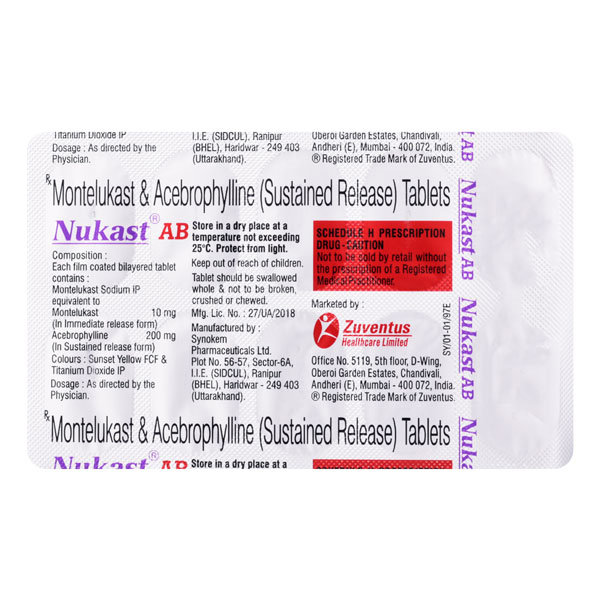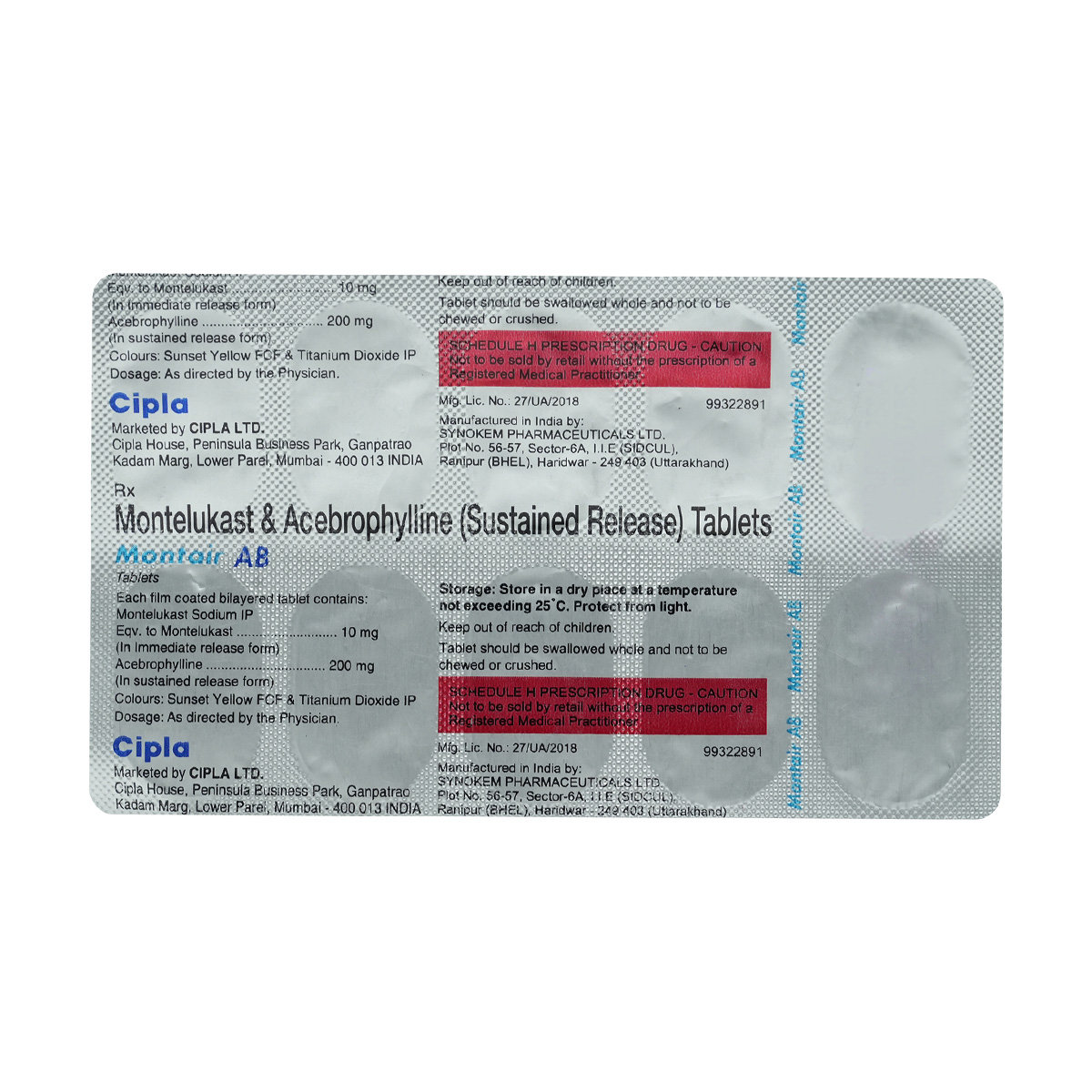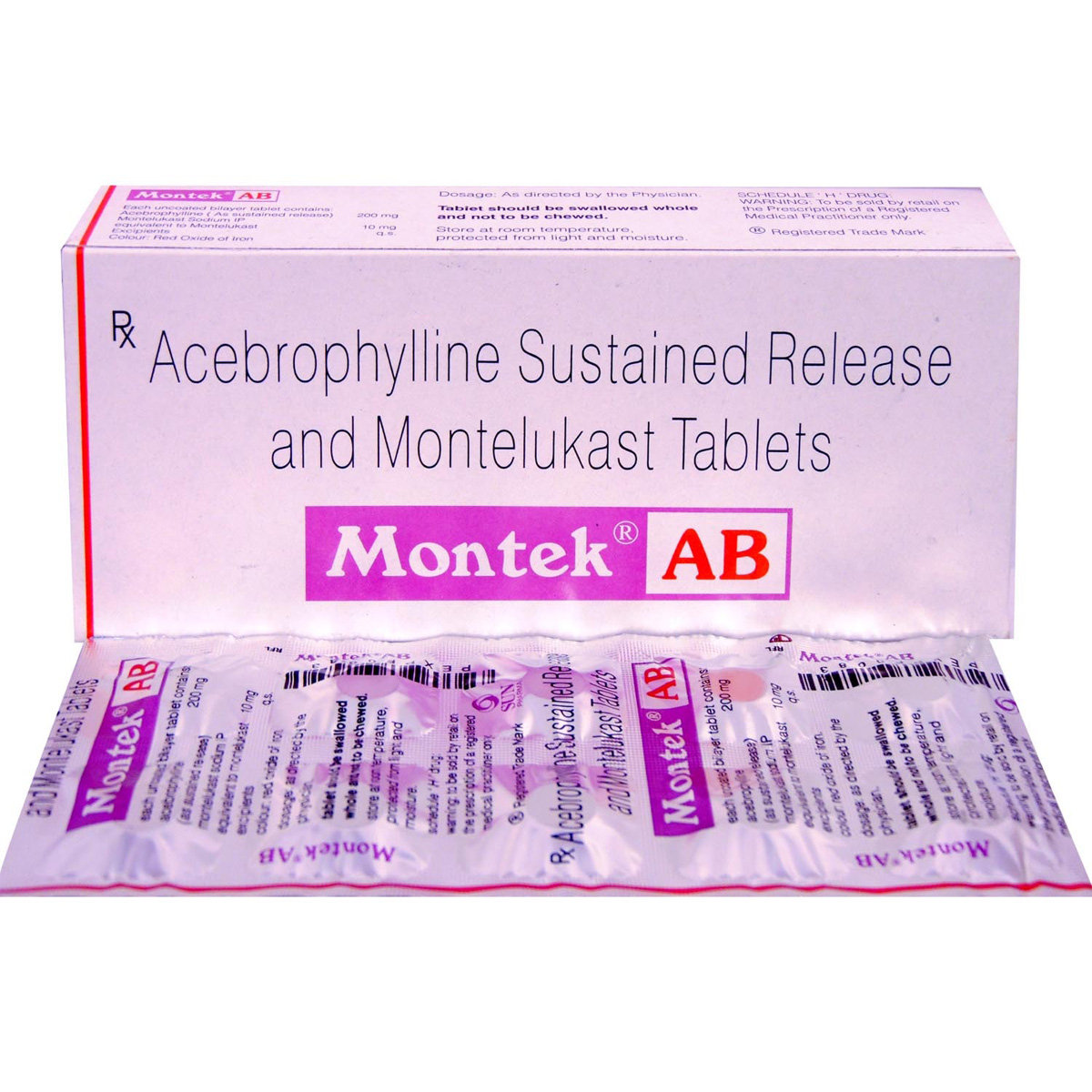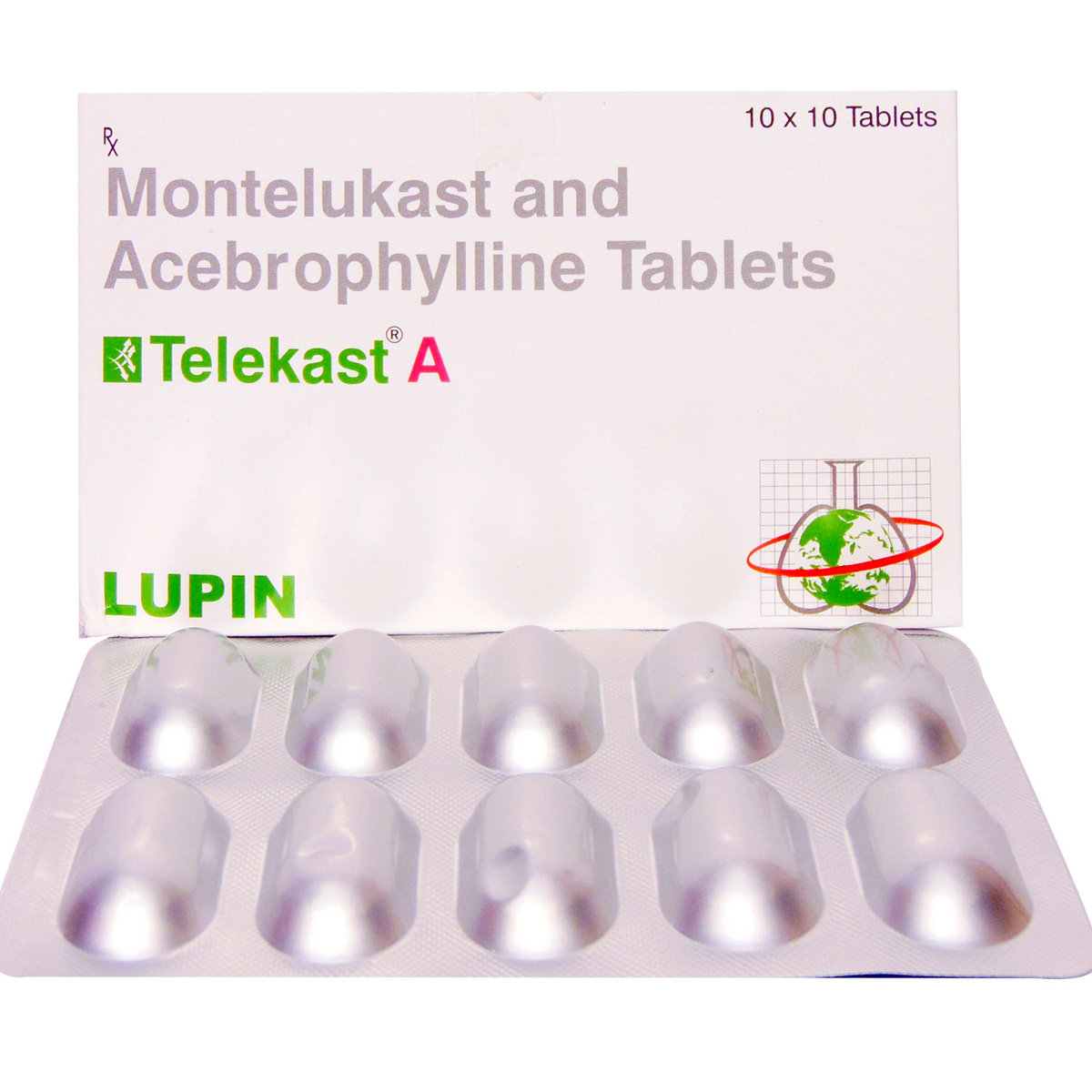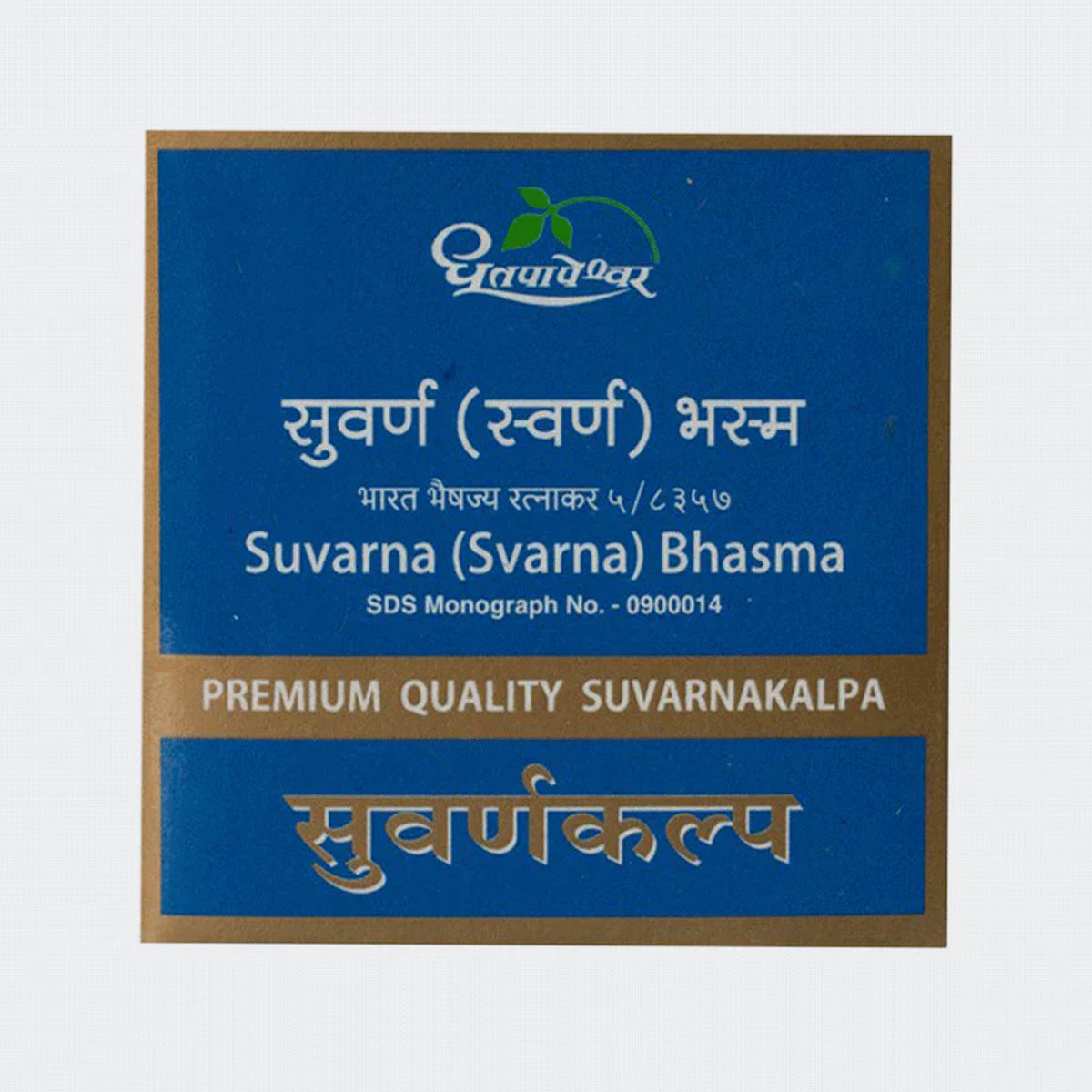Glemont A Tablet
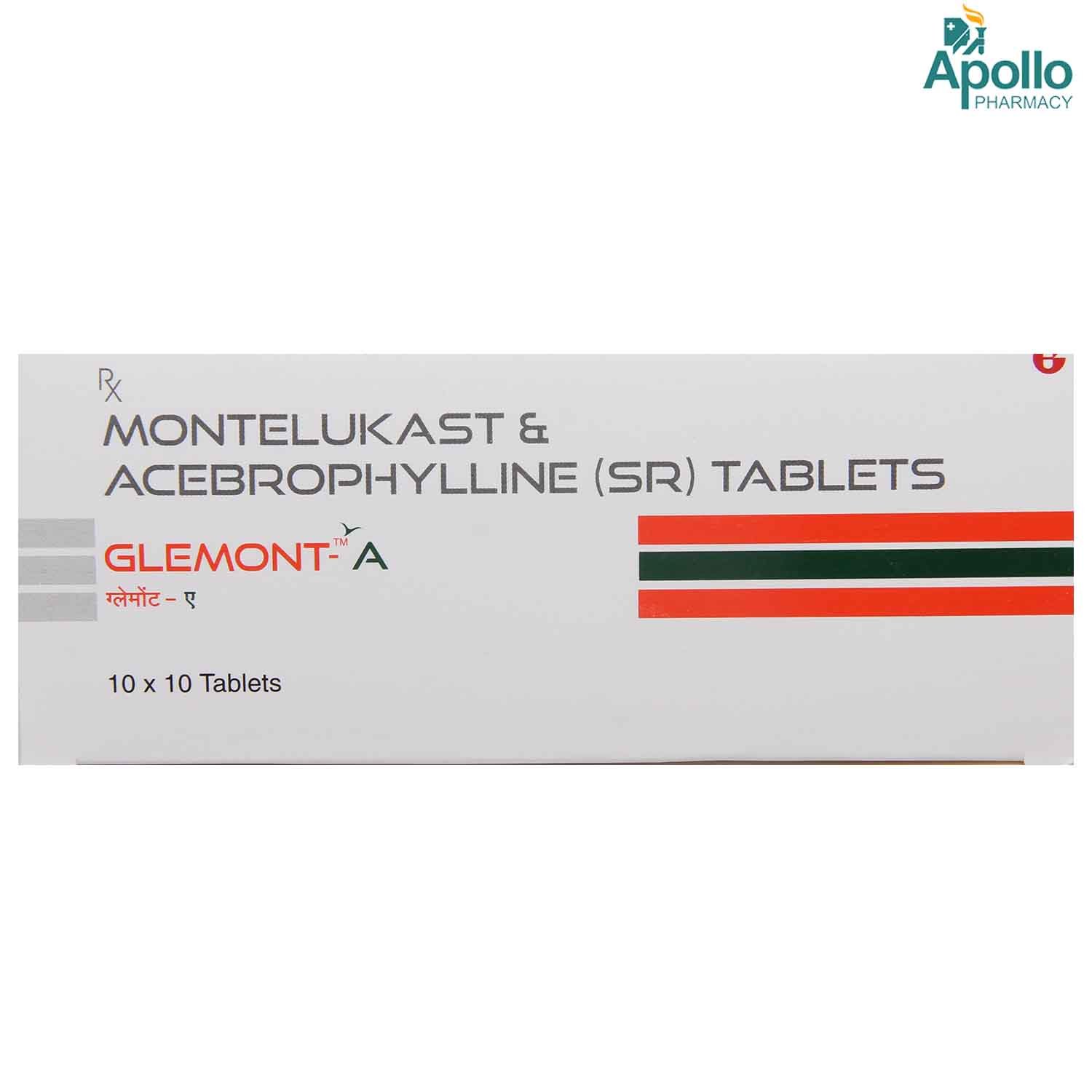
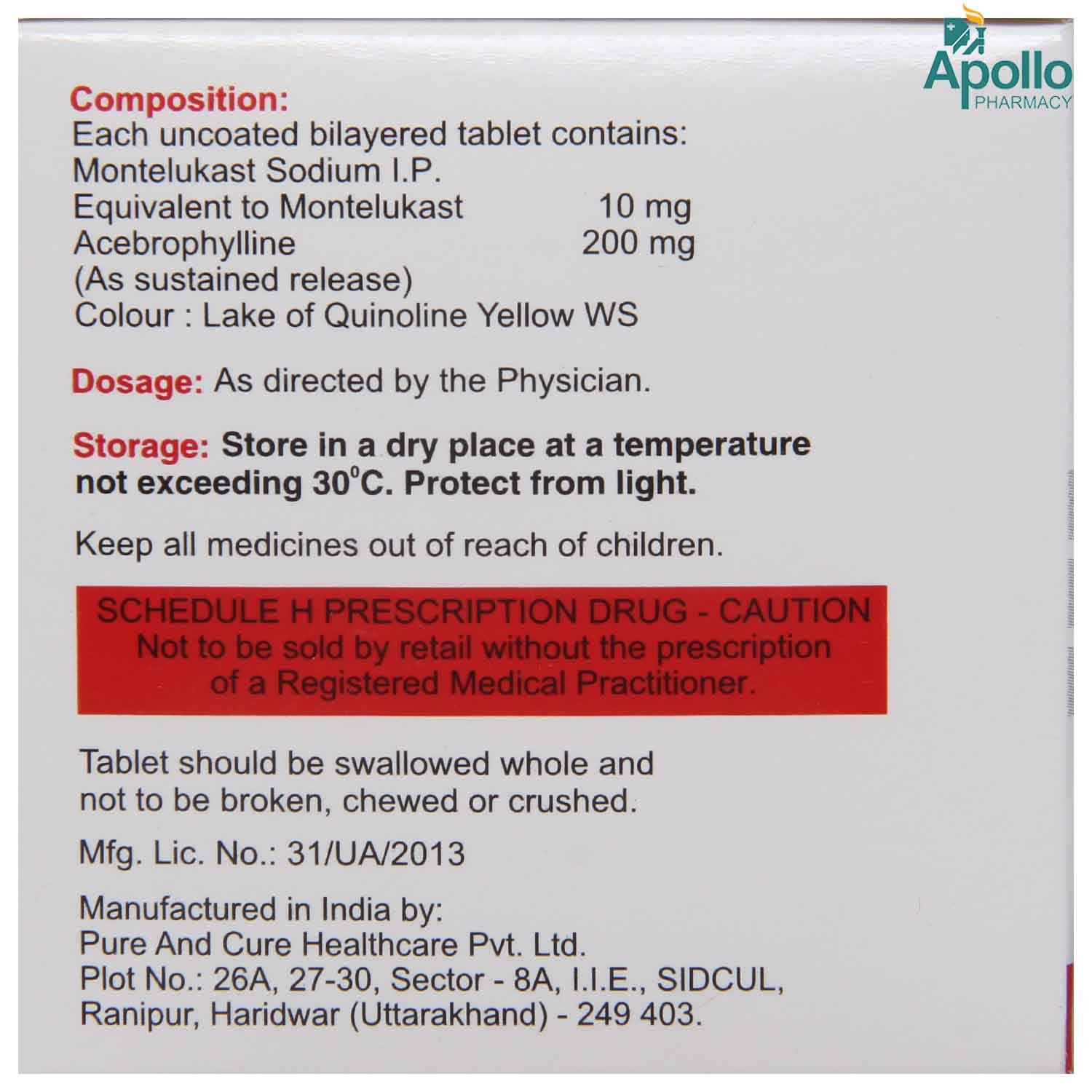
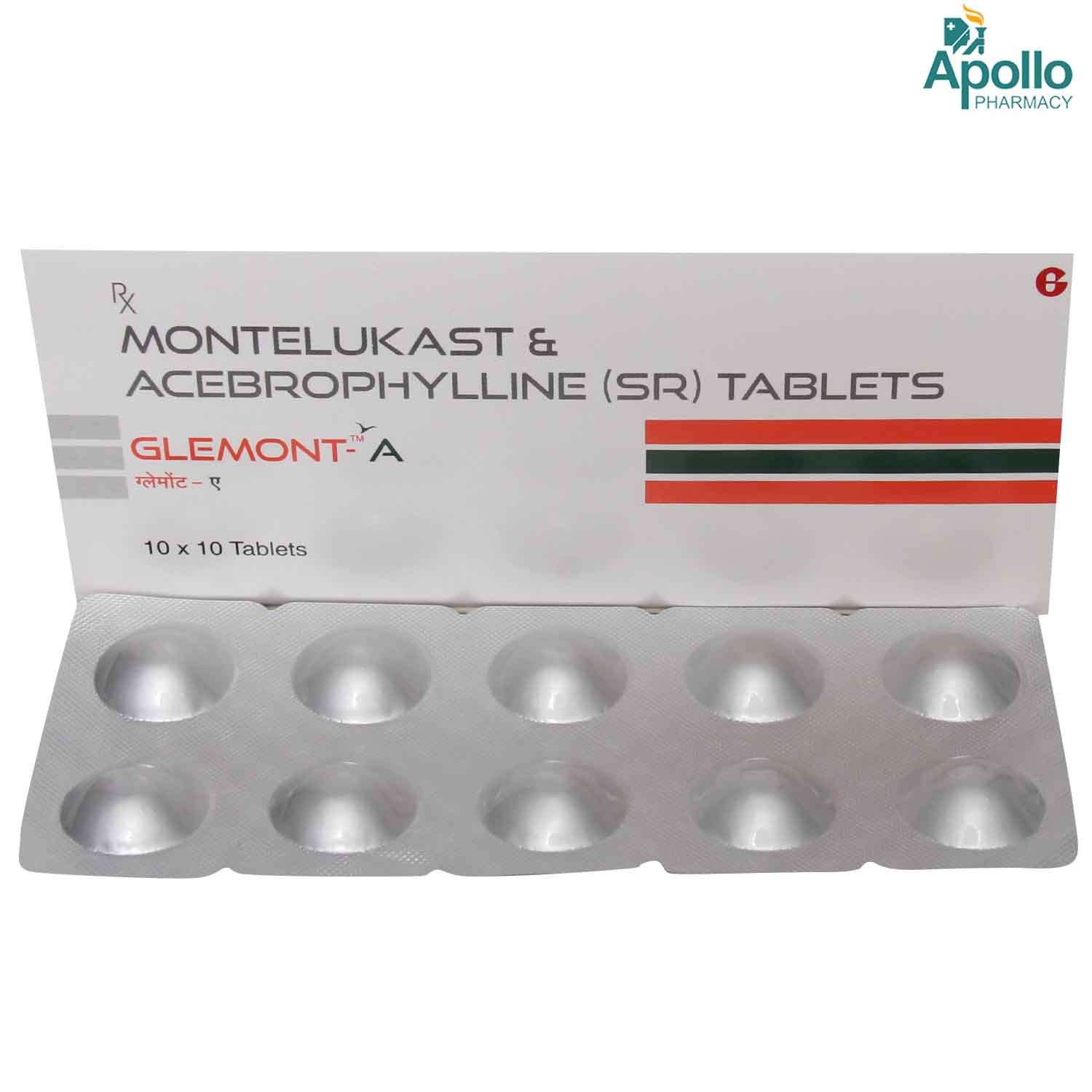
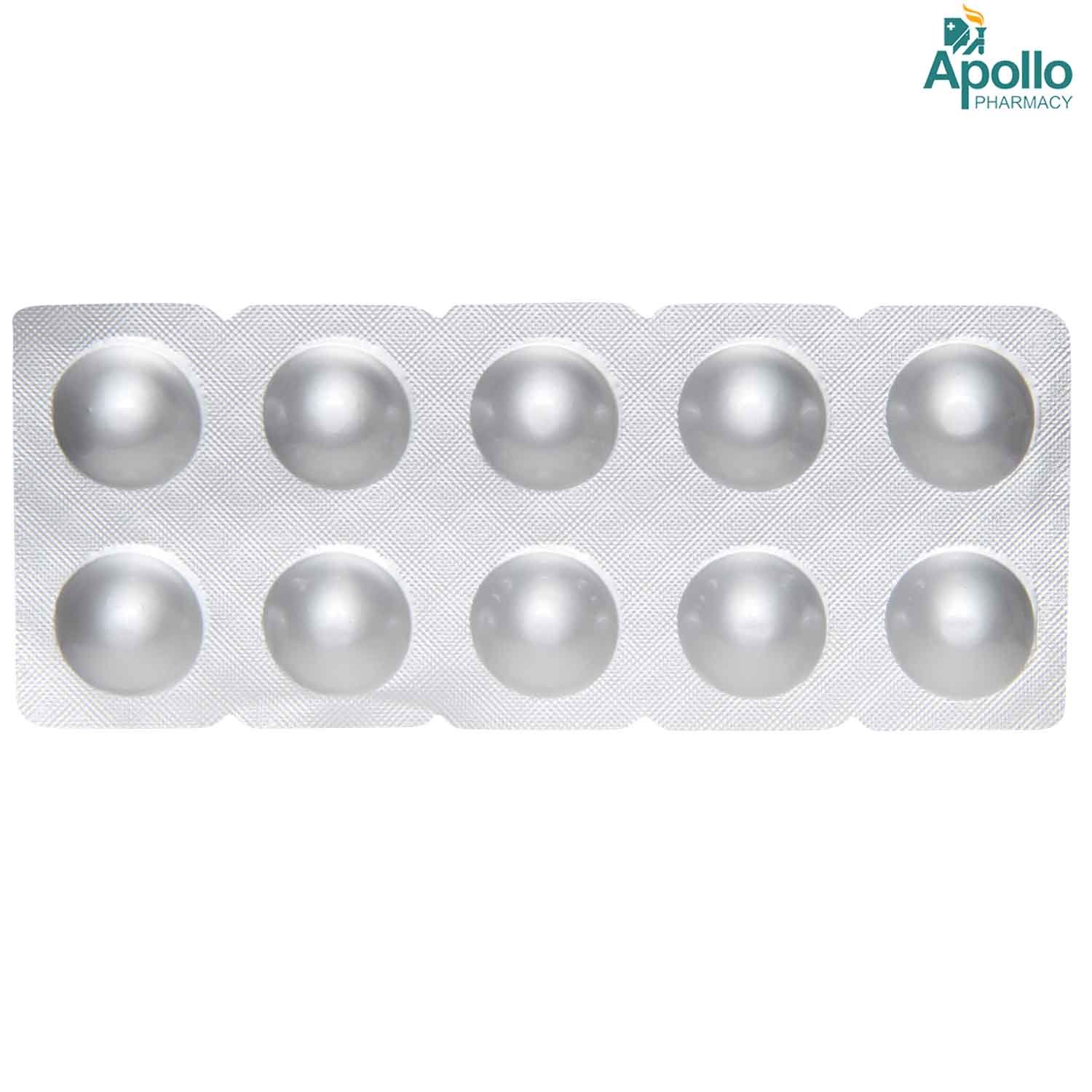
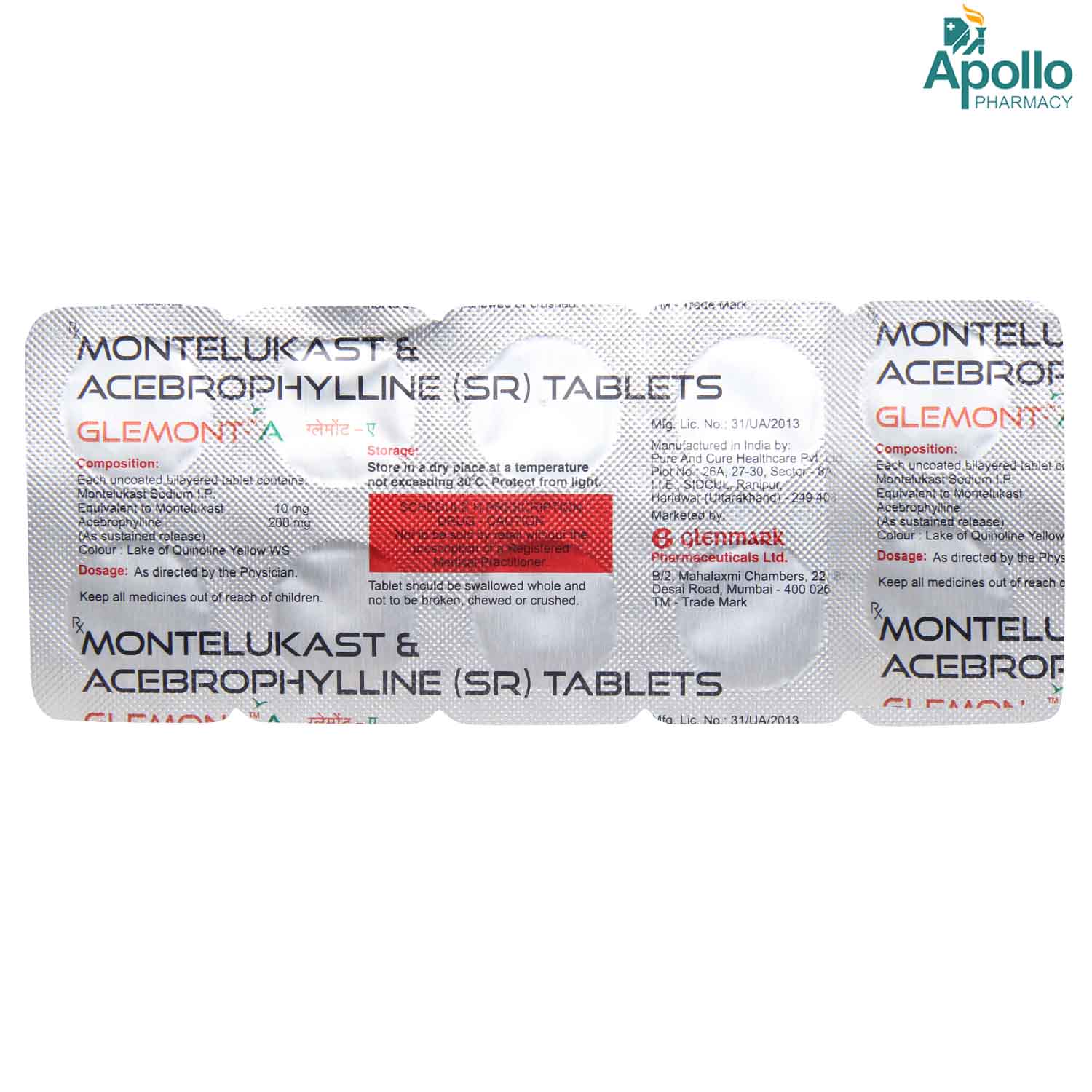
MRP ₹280
(Inclusive of all Taxes)
₹42.0 Cashback (15%)
know your delivery time
Provide Delivery Location
Composition :
Manufacturer/Marketer :
Consume Type :
Expires on or after :
Return Policy :

Secure Payment

Trusted by 8 Crore Indians

Genuine Products
Therapeutic Class
Country of origin
Manufacturer/Marketer address
Author Details
We provide you with authentic, trustworthy and relevant information
Disclaimer
Alcohol
Safe if prescribed
Avoid drinking alcohol while taking Glemont A Tablet to avail the maximum benefits and prevent the worsening of side-effects.
Pregnancy
Consult your doctor
Glemont A Tablet is recommended to use with caution and under doctor's supervision during pregnancy. Please consult your doctor if you are planning to conceive or already pregnant before starting Glemont A Tablet .
Breast Feeding
Consult your doctor
There is limited data on how Glemont A Tablet affects breastfeeding. Please consult your doctor before starting Glemont A Tablet .
Driving
Safe if prescribed
Do not drive or operate machinery if you experience drowsiness or difficulty in concentrating while using Glemont A Tablet . Glemont A Tablet may affect your ability to drive. Seek medical attention if the symptoms persist longer.
Liver
Consult your doctor
Glemont A Tablet should be used with caution in patients with liver diseases. Let your doctor know if you have any history of hepatic impairment before taking Glemont A Tablet .
Kidney
Consult your doctor
Glemont A Tablet should be used with caution in patients with kidney diseases. Let your doctor know if you have any history of kidney diseases. Your doctor will weigh the benefits and potential risks before prescribing Glemont A Tablet .
Children
Safe if prescribed
Glemont A Tablet is not recommended for use for children less than two years of age. The dose may have to be adjusted by your doctor depending upon the condition of the child's disease and age.
Product Substitutes
About Glemont A Tablet
Glemont A Tablet is a respiratory medication, primarily used to treat and prevent respiratory disorders like asthma attacks, chronic obstructive pulmonary diseases (COPD) and allergic rhinitis (hay fever). Asthma is a breathing problem in which airways narrow, swell and produce extra mucus, leading to difficulty breathing. COPD is a group of lung diseases that mainly include emphysema (shortness of breath) and chronic bronchitis (inflammation of the lining of your bronchial tubes). Allergic rhinitis is an inflammation of the nose caused by an allergen, such as pollen, dust, mould, or flakes of skin from certain animals.
Glemont A Tablet is a combination of two medicines: Acebrophylline (bronchodilator) and Montelukast (leukotriene receptor antagonist). Acebrophylline works by relaxing muscles and widening the airways of the lungs. Acebrophylline also has mucoregulating/mucolytic (dissolves thick mucus and helps relieve breathing difficulties) and anti-inflammatory properties. Montelukast blocks the leukotrienes (chemicals released in response when a body comes in contact with an allergen), thereby reducing inflammation and swelling in the nose. It also inhibits bronchoconstriction (narrowing of airways in the lungs that lead to breathing difficulties) and is used in treating asthma and allergic rhinitis.
Your doctor will advise the dose and duration of the course based on the severity of your disease. The common side effects of Glemont A Tablet include headache, sore throat/cough, vomiting, upset stomach, diarrhoea, heartburn, runny nose, rash, itching, drowsiness, restlessness, abdominal pain (stomach pain), and nasal inflammation. Most of these side effects of Glemont A Tablet do not require medical attention and gradually resolve over time. However, if the side effects are persistent, please reach out to your doctor.
Glemont A Tablet is not intended for use during an acute asthma attack. Your doctor may suggest other medications for your sudden asthma attack. Please inform your doctor in advance if you have heart, liver, kidney and lung diseases, seizures (fits) and depression, phenylketonuria (birth defect caused by the build-up of an amino acid called phenylalanine in the body), hyperthyroidism (overactive thyroid), high blood pressure, stomach ulcers and viral infections before taking Glemont A Tablet . It is advisable to check with your doctor if you are pregnant, currently breastfeeding, or taking any other prescribed or non-prescribed medicines before starting Glemont A Tablet .
Uses of Glemont A Tablet
Medicinal Benefits Mweb
Key Benefits
Glemont A Tablet contains Acebrophylline and Montelukast. Acebrophylline is a bronchodilator that works by relaxing muscles and widening the airways of the lungs. Acebrophylline also has muc0-regulating/mucolytic (dissolves thick mucus and helps relieve breathing difficulties) and anti-inflammatory properties. Montelukast blocks leukotrienes (chemicals released in response when a body comes in contact with an allergen) and reduces inflammation and swelling in the nose. It also inhibits bronchoconstriction (narrowing of airways in the lungs that lead to breathing difficulties). Montelukast is also used to relieve exercise-induced bronchospasm (shortness of breath that occurs only during exercise).
Directions for Use
Side Effects of Glemont A Tablet
- Headache
- Sore throat/Cough
- Vomiting
- Upset stomach
- Diarrhoea
- Heartburn
- Runny nose
- Rash, itching
- Drowsiness
- Restlessness
- Abdominal pain (stomach pain)
- Nasal inflammation
Drug Warnings
Do not stop taking this medicine of your own unless advised by your doctor. Before taking Glemont A Tablet , let your doctor know if have heart, liver, kidney and lung diseases, neuropsychiatric disorders like seizures (fits) and depression, phenylketonuria (birth defect caused by the build-up of an amino acid called phenylalanine in the body), hyperthyroidism (overactive thyroid), high blood pressure, stomach ulcers and viral infections. Glemont A Tablet is not intended for use during an acute asthma attack. Therapy with medicines like Montelukast should be cautiously administered in patients with neuropsychiatric disorders. Please seek medical advice if you are pregnant, currently breastfeeding, or taking any other prescribed or non-prescribed medicines before starting Glemont A Tablet .
Drug-Drug Interactions
Drug-Drug Interactions
Login/Sign Up
Coadministration of Rifapentine with Glemont A Tablet may reduce the blood levels and effects of Glemont A Tablet. This can lead to low treatment outcomes.
How to manage the interaction:
Taking Rifapentine with Glemont A Tablet together can possibly result in an interaction, it can be taken if your doctor has advised it. If you experience increased side effects such as headache, fever, sore throat, cough, abdominal pain, diarrhea, earaches, runny nose, or behavior and mood changes consult a doctor. Do not discontinue any medications without consulting a doctor.
Coadministration of Miconazole with Glemont A Tablet may increase the blood levels and effects of Glemont A Tablet. This increases the risk or severity of side effects.
How to manage the interaction:
Although there is a possible interaction between miconazole and Glemont A Tablet, you can take these medicines together if prescribed by your doctor. However, if you experience any symptoms such as fever, sore throat, cough, stomach pain, diarrhea, earache, runny nose, or uncommon, depression, confusion, difficulty concentrating, anxiety, hallucinations, irritability. memory impairment, restlessness, sleep walking, Consult a doctor immediately. Do not stop using medications without a doctor's advice.
Coadministration of Glemont A Tablet and Phenytoin may reduce the blood levels and effects of Glemont A Tablet. This can lead to low treatment outcomes.
How to manage the interaction:
Taking Glemont A Tablet and Phenytoin may interact with one another, but they can be taken together if your doctor has prescribed them. However, if you experience signs such as headache, fever, sore throat, cough, abdominal pain, diarrhoea, earache, runny nose, or behaviour and mood changes, consult a doctor immediately. Do not discontinue any medications without consulting a doctor.
Coadministration of Glemont A Tablet and primidone can reduce the levels and effects of Glemont A Tablet.
How to manage the interaction:
Taking Glemont A Tablet and Primidone together can possibly result in an interaction, it can be taken if prescribed by a doctor. However, if you experience any unusual symptoms, contact a doctor immediately. Do not discontinue any medications without consulting a doctor.
Coadministration of Glemont A Tablet and rifabutin can reduce the levels and effects of Rifabutin. This can lead to low treatment outcomes.
How to manage the interaction:
Taking Glemont A Tablet and rifabutin together can possibly result in an interaction, it can be taken if your doctor has advised it. However, if you experience increased side effects such as headache, fever, sore throat, cough, abdominal pain, diarrhea, earache, runny nose, or behavior and mood changes consult a doctor. Do not discontinue any medications without consulting a doctor.
Drug-Food Interactions
Drug-Food Interactions
Login/Sign Up
Drug-Diseases Interactions
Drug-Diseases Interactions
Login/Sign Up
Drug-Drug Interactions Checker List
- ALLOPURINOL
- CIMETIDINE
- CIPROFLOXACIN
- ERYTHROMYCIN
- AMOXICILLIN
- DOXYCYCLINE
- RIFAMPICIN
- THIABENDAZOLE
- ISOPRENALINE
- DILTIAZEM
- VERAPAMIL
- FUROSEMIDE
- PHENYTOIN
- PHENOBARBITAL
Habit Forming
Diet & Lifestyle Advise
- Add ginger to foods or tea as it contains some anti-inflammatory compounds that can relax membranes in the airways and reduce cough, irritation, and swelling in nasal passages.
- Eat foods rich in potassium, such as tomatoes, bananas, asparagus, oranges, potatoes, avocados, dark leafy greens, and beetroot, as potassium is important for lung function and potassium deficiency may cause breathing problems.
- Staying hydrated is vital for those with a cough or cold. Drink liquids at room temperature to get relief from runny nose, cough, and sneezing.
- Do meditation, deep breathing, regular exercise, and try progressive muscle relaxation techniques to get relief from stress.
- Quit smoking as it may reduce the effectiveness of the Glemont A Tablet and irritate the lungs worsening breathing problems.
- It is advised to avoid contact with known allergens (allergy-causing agents), such as pollen, dust, etc. Also, certain food items are known to cause allergies to you.
- Maintain personal hygiene and keep your surroundings clean.
All Substitutes & Brand Comparisons
RX
Muciday Tablet 10's
Seagull Pharmaceutical Pvt Ltd
₹147
(₹13.23 per unit)
47% CHEAPERRX
Ablife M 10/200 Tablet 10's
Orris Pharmaceuticals
₹154.5
(₹13.91 per unit)
44% CHEAPERRX
Oxybro Plus Tablet 10's
Cadila Healthcare Ltd
₹168.5
(₹15.17 per unit)
39% CHEAPER
Buy best Respiratory System products by
Cipla Ltd
Lupin Ltd
Glenmark Pharmaceuticals Ltd
Sun Pharmaceutical Industries Ltd
Alkem Laboratories Ltd
Macleods Pharmaceuticals Ltd
Mankind Pharma Pvt Ltd
Zydus Healthcare Ltd
Leeford Healthcare Ltd
Dr Reddy's Laboratories Ltd
Zydus Cadila
Abbott India Ltd
Intas Pharmaceuticals Ltd
Alembic Pharmaceuticals Ltd
German Remedies Ltd
Centaur Pharmaceuticals Pvt Ltd
Ipca Laboratories Ltd
Aristo Pharmaceuticals Pvt Ltd
Pristine Pearl Pharma Pvt Ltd
Wockhardt Ltd
GlaxoSmithKline Pharmaceuticals Ltd
Zuventus Healthcare Ltd
Koye Pharmaceuticals Pvt Ltd
Micro Labs Ltd
Blue Cross Laboratories Pvt Ltd
Medishri Healthcare Pvt Ltd
Med Manor Organics Pvt Ltd
Indiabulls Pharmaceuticals Pvt Ltd
Adonis Laboratories Pvt Ltd
FDC Ltd
Fourrts India Laboratories Pvt Ltd
Tablets India Ltd
J B Chemicals & Pharmaceuticals Ltd
Shreya Life Sciences Pvt Ltd
Divine Savior Pvt Ltd
Indoco Remedies Ltd
Seagull Pharmaceutical Pvt Ltd
Yash Pharma Laboratories Pvt Ltd
Torque Pharmaceuticals Pvt Ltd
Uniza Healthcare Llp
Wings Pharmacuticals Pvt Ltd
Biological E Ltd
Corona Remedies Pvt Ltd
Icarus Health Care Pvt Ltd
Steris Healthcare
Apex Laboratories Pvt Ltd
Geno Pharmaceuticals Pvt Ltd
Navil Laboratories Pvt Ltd
Precept Pharma
Aar Ess Remedies Pvt Ltd
La Renon Healthcare Pvt Ltd
Torrent Pharmaceuticals Ltd
Astra Zeneca Pharma India Ltd
Biochem Pharmaceutical Industries Ltd
Comed Chemicals Ltd
Entod Pharmaceuticals Ltd
Franco Indian Pharmaceuticals Pvt Ltd
Healthgate Pvt Ltd
Intra Life Pvt Ltd
Megma Healthcare Pvt Ltd
Pfizer Ltd
RPG Life Sciences Ltd
Unipark Biotech Pvt Ltd
Votary Laboratories (India) Ltd
Wanbury Ltd
Brinton Pharmaceuticals Ltd
Dolvis Bio Pharma Pvt Ltd
Eisen Pharmaceutical Co Pvt Ltd
Group Pharmaceuticals Ltd
Knoll Pharmaceuticals Ltd
Morepen Laboratories Ltd
Panacea Biotec Ltd
Prevego Healthcare & Research Pvt Ltd
Rnd Laboratories Pvt Ltd
Sanatra Healthcare Ltd
Skn Organics Pvt Ltd
Stedman Pharmaceuticals Pvt Ltd
Thuyam Life Pvt Ltd
Timon Pharmaceuticals Pvt Ltd
Aglowmed Pharmaceuticals Ltd
Ajanta Pharma Ltd
Alniche Life Sciences Pvt Ltd
Bio Warriors Pharmaceucticals Pvt Ltd
Biochemix Health Care Pvt Ltd
Cadila Healthcare Ltd
Cadila Pharmaceuticals Ltd
Caplet India Pvt Ltd
Chemo Healthcare Pvt Ltd
Delcure Life Sciences Ltd
East West Pharma India Pvt Ltd
Elder Pharmaceuticals Ltd
Embiotic Laboratories (P) Ltd
Emcee Pharmaceuticals (P) Ltd
Foregen Healthcare Ltd
Hetero Healthcare Pvt Ltd
Incite Pharmaceuticals
Iva Healthcare Pvt Ltd
Kepler Healthcare Pvt Ltd
Kristal Pharmaceuticals
Lincoln Pharmaceuticals Ltd
Frequently Bought Together
Customers Also Bought
Recommended for a 30-day course: 3 Strips



